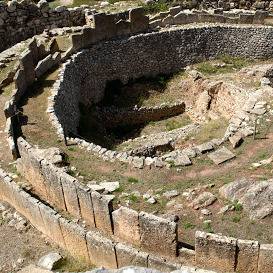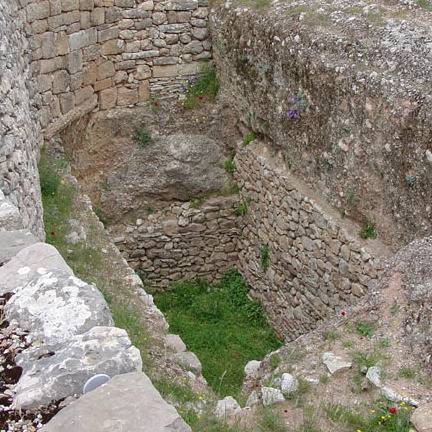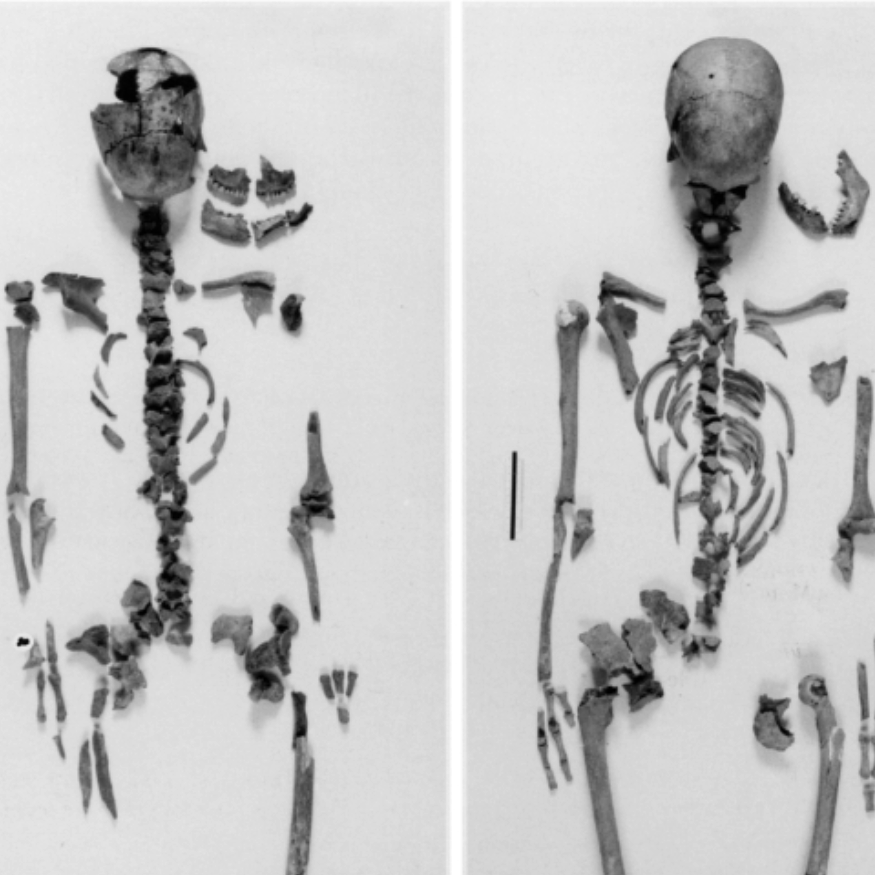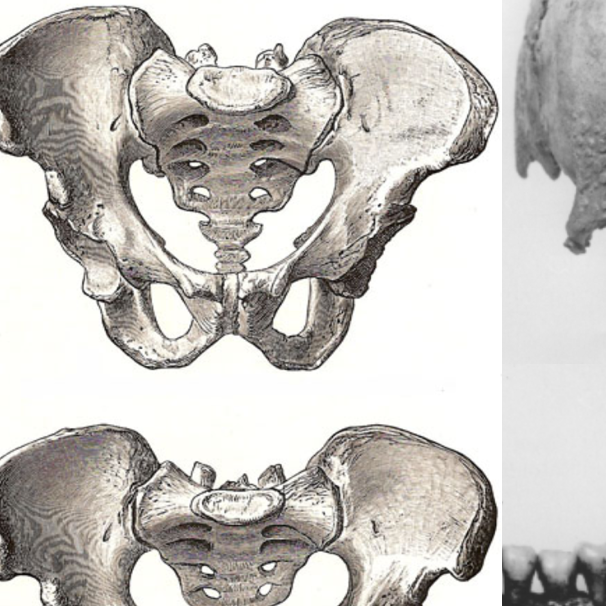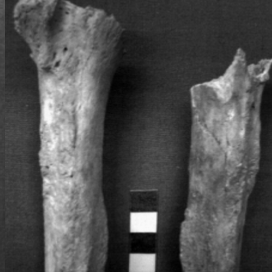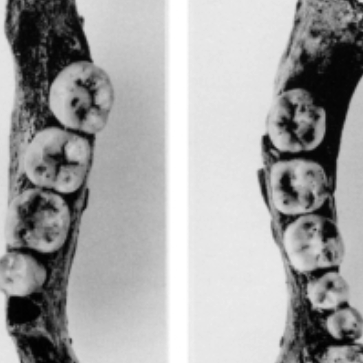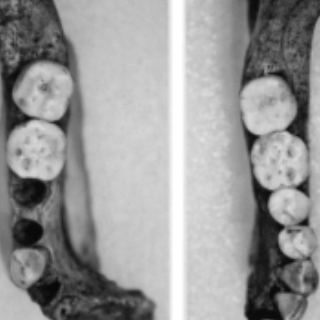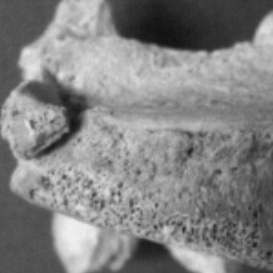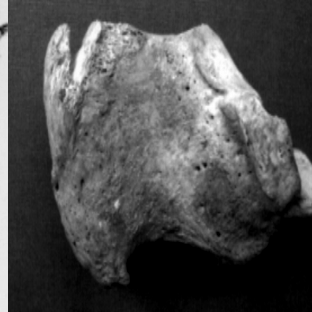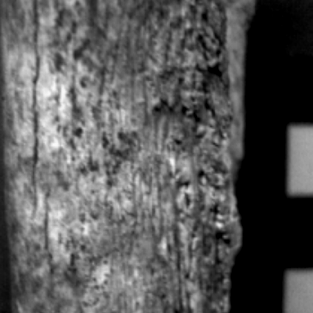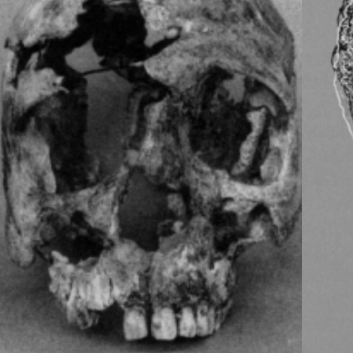Osteological Analysis for Grave Circle A
Osteological Analysis for Grave Circle A
About museum
News
Guestbook
Credits
Exhibits
-
 Works Cited
Works Cited
-
 Grave Circle A Shaft Grave VI
Grave Circle A Shaft Grave VI
-
 Distinguishing between multiple skeletons
Distinguishing between multiple skeletons
-
 Determination of gender
Determination of gender
-
 Long bones to determine age
Long bones to determine age
-
 Dentition of Individual 1
Dentition of Individual 1
-
 Dentition of Individual 2
Dentition of Individual 2
-
 Injury remodeling
Injury remodeling
-
 Enthesophytosis of the bones of the lower extremities
Enthesophytosis of the bones of the lower extremities
-
 Enthesophytosis of the bones of the upper extremities
Enthesophytosis of the bones of the upper extremities
-
 Reconstruction of the face of individual 1
Reconstruction of the face of individual 1




